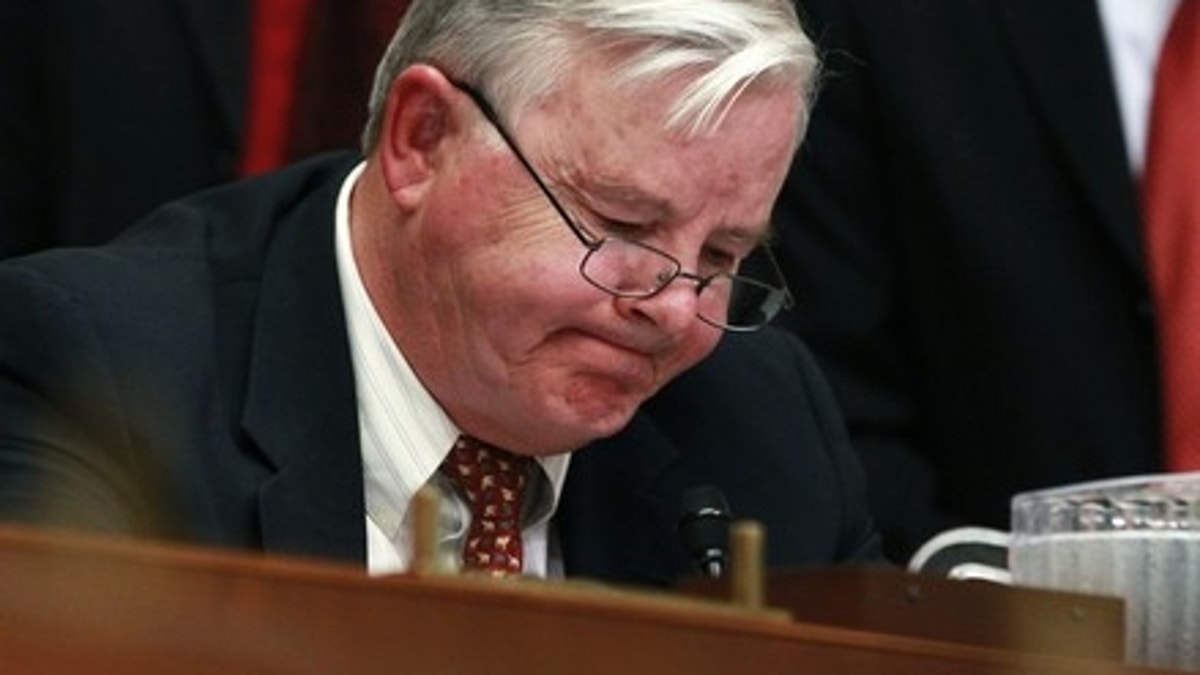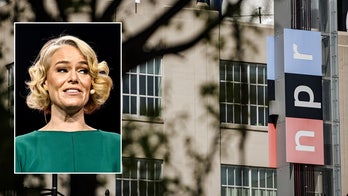
June 17: Rep. Joe Barton asks a question at a House Energy and Commerce Committee hearing on the BP oil spill in the Gulf of Mexico, on Capitol Hill. (Reuters)
The lawmaker vying to be chairman of the House Energy and Commerce Committee in the next Congress is challenging Federal Communications Commissioner Michael Copps to explain his proposal for new public interest regulations on the media, whose news coverage he criticized along with his own agency's role in regulating it.
Last week during a speech at Columbia University, Copps outlined a plan for a "public value test" every four years that would make the license renewal of broadcasters contingent upon meeting federal criteria such as the delivery of news, diversity, the conducting of community input meetings and local programming requirements.
"It's a pretty serious situation that we're in," Copps told BBC Washington correspondent Katty Kay last week. "We are not producing the body of news and information that democracy needs to conduct its civic dialogue, we're not producing as much news as we did five, 10 years, 15 years ago and we have to reverse that trend or I think we are going to be pretty close to denying our citizens the essential news and information that they need to have in order to make intelligent decisions about the full direction of their country."
Barton sent Copps a letter on Monday asking him whether he believes the FCC should reinstate the Fairness Doctrine, if his public values test is meant to bring back the ascertainment rules and whether he believes the panel's five commissioners can do a better job of ensuring Americans have access to a wide diversity of content and viewpoints than the marketplace.
"I hope ... that you do not mean to suggest that it is the job of the federal government, through the Federal Communications Commission, to determine the content that is available for Americans to consume," Barton wrote in the letter.
"Although your concern for providing American citizens information they need to 'make intelligent decisions about the full direction of their country' may stem from the very best of intentions, increasing the federal government's role in the composition of the information Americans have at their disposal -- in an information marketplace that is bigger and more easily accessible than ever before -- is unwise policy and raises serious questions of constitutionality," he said.
The Fairness Doctrine, first instituted in the late 1940s, threatens to strip broadcasters of their licenses if they failed to give free airtime to opposing sides on controversial issues.
A spokesman for Copps told FoxNews.com that he would respond to Barton's letter by the end of the week.
It is unlikely that any such regulation would get through Congress with Republicans taking control of the House in January and increasing their ranks in the Senate.
This isn't the first issue that Republicans and the FCC have clashed over. Republicans have opposed the FCC's so-called "network neutrality" rules which would prohibit phone and cable companies from blocking or discriminating against Internet traffic flowing over their broadband networks.
The FCC is expected to vote on the proposal by the end of this month.
Last month, Sen. Jay Rockefeller, D-W. Va., publicly wished that the FCC would shut down Fox News and MSNBC to improve the political discourse -- a request the FCC cannot fulfill since it only regulates broadcast airwaves, not cable.
"It would be a big favor to political discourse; to our ability to do our work here in Congress; and to the American people, to be able to talk with each other and have some faith in their government and, more importantly, in their future," said the chairman of the Senate Committee on Commerce, Science and Transportation.
The FCC never commented on the request.




